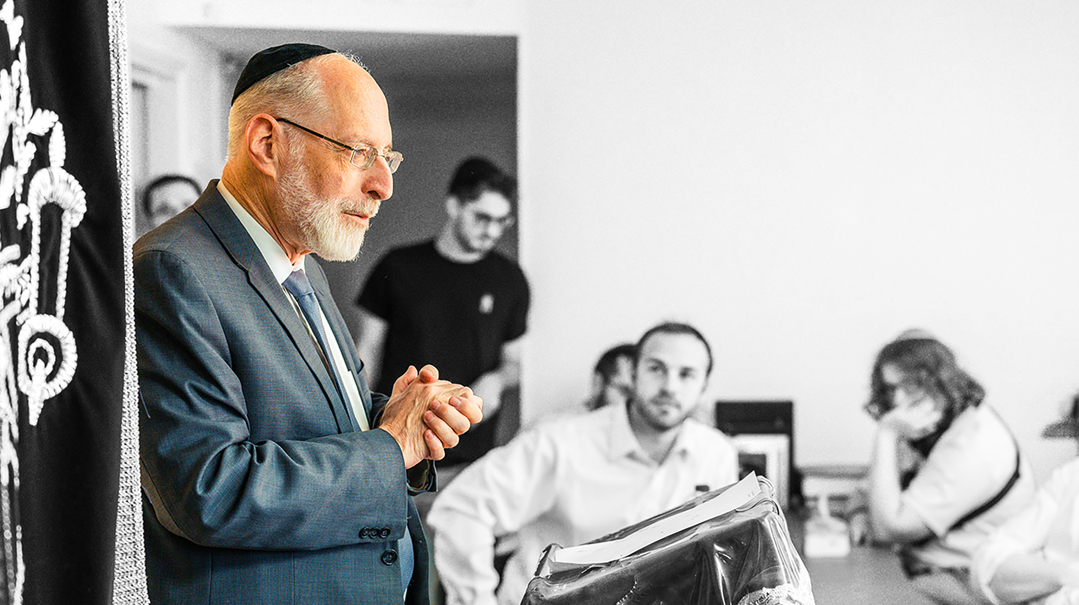Home Away from Home
| February 1, 2017
MAKING SPACE FOR OTHERS “I’ve learned a lot about people” says Aviva whose family has hosted boarders for many years. “I also think my children benefitted from seeing the other kids. It increased their hakaras hatov for their own ‘normal’ family as they realized that not all homes function so well. They learned to get along and make space for others”
B aila originally sought boarders to help pay off the mortgage on her Jerusalem home. She envisioned these high school girls becoming part of her family in the rose-colored happily-ever-after scenario she’d heard and read about.
It didn’t quite work out that way. “They didn’t really want an adopted family! They just needed a warm home a friendly place to stay” she says. “My own high-school daughter did enjoy the company and become friendly with our boarders though which was nice.”
Though boarding does bring in an income seasoned host families urge people not to view it as simply a business agreement. “If you’re hosting purely to ease financial burdens in your home you won’t have a positive experience” says Chaia Frishman who had two young-adult boarders staying in her home at different times. “The payment is a perk yet having a boarder is doing chesed for someone who needs a place to live. No one can live in a hotel — so go in with the attitude that you’re doing chesed providing another person with what they need.”
In most cases boarders are teenagers or young adults so the chesed you provide may go far beyond simple room and board. Additional responsibilities may include preparing dinner on a nightly basis providing linens doing laundry or offering laundry facilities and keeping in touch with boarders’ parents or school administrations. Shabbos arrangements vary depending on whether the boarder’s home is within easy travel reach.
These basic arrangements aside other duties arise naturally when you’re the adult on location. Aviva often had to chauffeur the girls she hosted and when they were sick she took care of doctor’s appointments and picking up prescriptions. “At the end of the day they’re only high school kids. If they need something you’re the adult you have to help them. And by the same token you’re responsible for knowing where they are ” says Aviva who was originally asked to host boarders for her local girls’ high school and has had boarders for many years.
Every high school requires different things from host parents. In some cases you may be asked to play an active role. “We were supposed to ensure that the boys took showers and went to bed on time. Not an easy task” says Chava who has hosted high school boys from different yeshivos over the years.
Starting Right
Boarders are no exception to the golden rule of successful long-term relationships: Clarify expectations from the start.
“If you open your home to someone tell them clearly at the beginning which days they can use the washing machine what they can take freely and what not ” says Chava. “Begin with structure and boundaries and you can always be nicer afterward if it’s working. If your starting point is ‘take whatever you want feel free ’ you may lose control of your home and eventually resent it. Consider carefully what you’re able to offer on an ongoing basis. Plus some teens know how to manipulate. If you’re too nice and don’t set house rules you’re doing it at your own peril because they’ll walk all over you.”
Chaia also made clear rules at the beginning. “I had adult boarders so my stipulation was ‘dinner not included.’ I did sometimes invite them to join us for dinner but I wouldn’t want to commit myself to cooking a meal every night. What if I didn’t feel like cooking and my own family was okay with cereal or noodles? What if we were eating out? I also made it clear that when they did cook for themselves they had to clean up.”

Even when the boarder doesn’t have issues he or she is still a teen trying to navigate the ups and downs of teenage life and high school pressures under the added stress of being in a stranger’s home. “It’s not easy for these kids” host mother Baila admits
Aviva says that she once followed someone’s advice to be exclusively nice and warm at first with no rules. But that just made things harder in the long run. “Trying to recoup afterward and telling a boarder that there are boundaries both within the household and regarding the school’s expectations such as curfews and dress code was really challenging. It can cause a lot of ill feelings on the boarder’s part.
“Now” continues Aviva “I sit down with each new boarder for a chat. I tell her that I want her to be comfortable she can ask me for things she wants and have her friends over but I tell her how our house runs too. I open the lines of communication so that we can tell each other our needs and thoughts.”
It’s a constant balancing act. “Girls would sometimes ask me to buy groceries that were very expensive or real junk food” said Aviva. “One teen informed me ‘this product is kosher — my mother said I can eat anything with a K on it!’ You want the girls to be comfortable but it’s not their house. They have to accept the nature of your home and live as you live.”
Oops! We could not locate your form.












